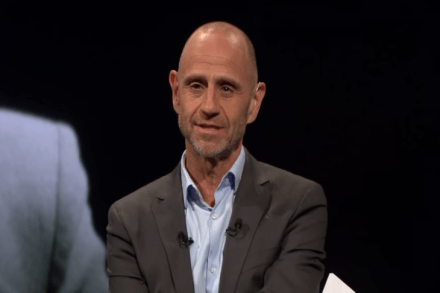Watch: Evan Davis taken to task over Brexit bias
Brexit supporters are used to getting a hard time when they appear on TV, but enough was enough for Iain Dale when he popped up on Newsnight last night. After being introduced as a Brexit supporter – in contrast to Matthew Parris and Rachel Shabi, who were called a ‘Times columnist’ and a ‘Labour-supporting columnist’ – Dale took Evan Davis for task: Iain Dale: ‘Why do I get called Brexit supporter and these two – you don’t describe these two as Remain.’ Evan Davis: ‘Yeah but but –’ Dale: ‘I mean, come on…’ Davis: ‘You’re quite right…You are our Brexit supporter, and I want to get from you––’ Dale: ‘It’s always one against




















